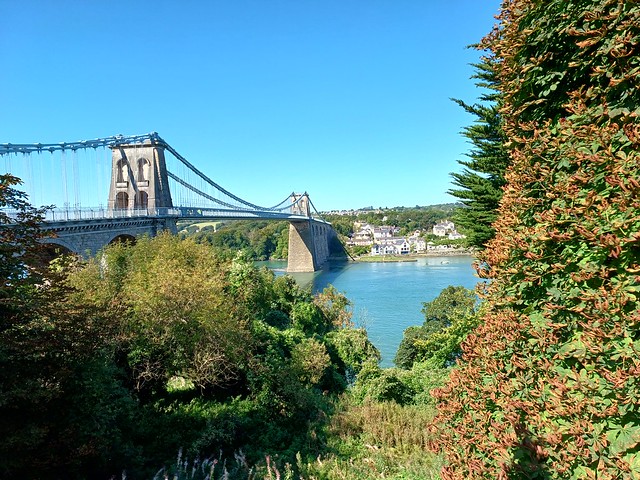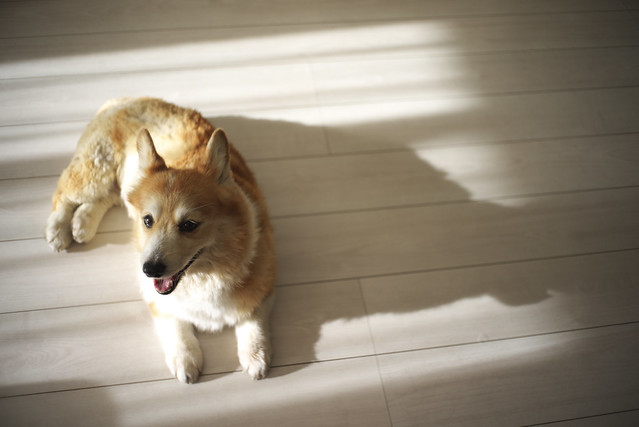Words for blue, green, grey and related things in Celtic languages.
Words marked with a * are reconstructions.
| Proto-Celtic | *glastos = green, blue |
|---|---|
| Gaulish | *glastom = green, blue |
| Old Irish (Goídelc) | glas [ɡlas] = green, greenish (esp of growing things); blue, green-blue, grey-blue; metallic (colour); ice/frost colour; grey; wan (complexion); bluish, livid, discolored; faded |
| Middle Irish (Gaoidhealg) | glas = green, greenish (esp of growing things), blue, greenish blue, greyish blue, wan (complexion), livid, discoloured, faded (of garments) glasaid = to grow pale or livid, to become yellow, to make green glase = greenness, blueness, steel-colour |
| Irish (Gaeilge) | glas [ɡlˠasˠ] = green (grass, politics), grey (horses, cloth, eyes), blue, pale, pallid, immature, unseasoned, raw inexperienced glasaigh = to become green, sickly, grey, raw or chill, to make green glasra = green, garden, stuff, vegetable, vegetation glasrachán = pale, sickly-looking, person. glasta = shiny, glossy |
| Scottish Gaelic (Gàidhlig) | glas [gl̪ˠas] = grey-green, pale, wan, sallow, green, unripe glasadh, glasachadh = greying, dawning glasail [gl̪ˠasal] = greyish, pale, wan glasraich [ɡl̪ˠasrɪç] = vegetable(s), greens glasraichear [ɡl̪ˠasrɪçər] = vegeratian |
| Manx (Gaelg) | glass = green (of nature), verdant, soft, pale, pasty, ashen (colour), grey (of animal), raw, unfledged, sappy, callow (of youth) glassrey = vegetable, to vegetate glassoil = greenish glassaghey = greying, pale |
| Proto-Brythonic | *glas = green, blue |
| Middle Welsh (Kymraec) | glas, glâs = blue, greenish blue, sea-green glasu, glassu = to (turn) pale, turn grey, burnish, polish glasỽellt, glaswellt = grass, green grass or pasture glaswyn, glaswen = light blue, pale blue |
| Welsh (Cymraeg) | glas [ɡlaːs] = blue, azure, sky-blue, greenish blue, sea-green, green, grass-coloured, bluish green, verdant, unripe (of fruit), greyish-blue, slate-coloured, livid, pallid, pale, grey, silver glasaf, glasu = to (turn) pale, turn grey, burnish, polish glasddu = dark blue, deep blue, violet glasgoch = blue tinged with red, purple, violet, puce glaswellt = grass, green grass pr pasture glaswelltir = glassland, pasture glaswyn = light blue, pale blue |
| Middle Cornish (Cernewec) | glas, glâs = blue, azure, sky coloured, gray, ash coloured, verdant, green glase = to become blue, to grow pale, to be green, to flourish glasygyon = a green, green plot |
| Cornish (Kernewek) | glas [ɡla:z /ɡlæ:z] = blue, green, grey, sea colour glasdu = dark blue glasik = blueish glasneth = vegetation, uncultivated land glasrudh = blueish purple, purple, violet glaswr, glaswyrdh = sea green, turquiose glaswyn = light blue, sky blue |
| Middle Breton (Brezonec) | glas = blue, green, azure |
| Breton (Brezhoneg) | glas/glaz [ɡlɑːs] = blue, green (nature), grey (horse), raw & salty, fresh, bitter, pale glasaat = to green, freshen up glasded = greenness glasdu = dark blue glasvez = greenery glaswenn = light blue |
Sources: Wiktionary, Am Faclair Beag, Online Manx Dictionary, Teanglann.ie, eDIL – Electronic Dictionary of the Irish Language, In Dúil Bélrai English – Old Irish glossary, Geiriadur Prifysgol Cymru, Gerlyver Kernewek, Dictionaire Favereau, TermOfis, English – ProtoCeltic WordList (PDF), Etymological Dictionary Of Proto Celtic




